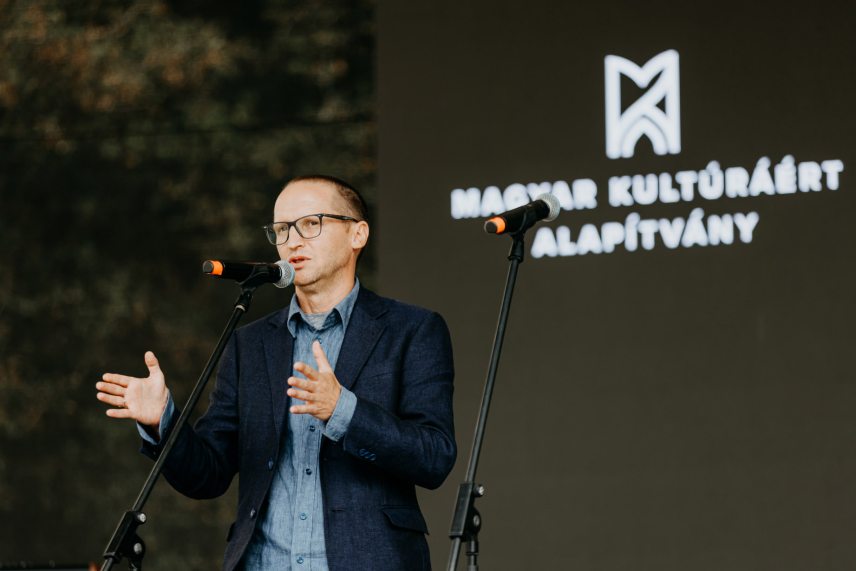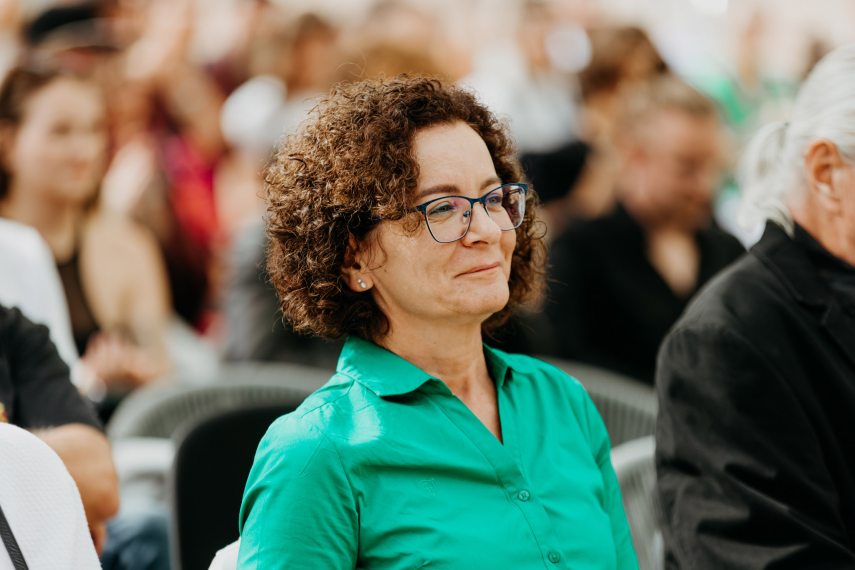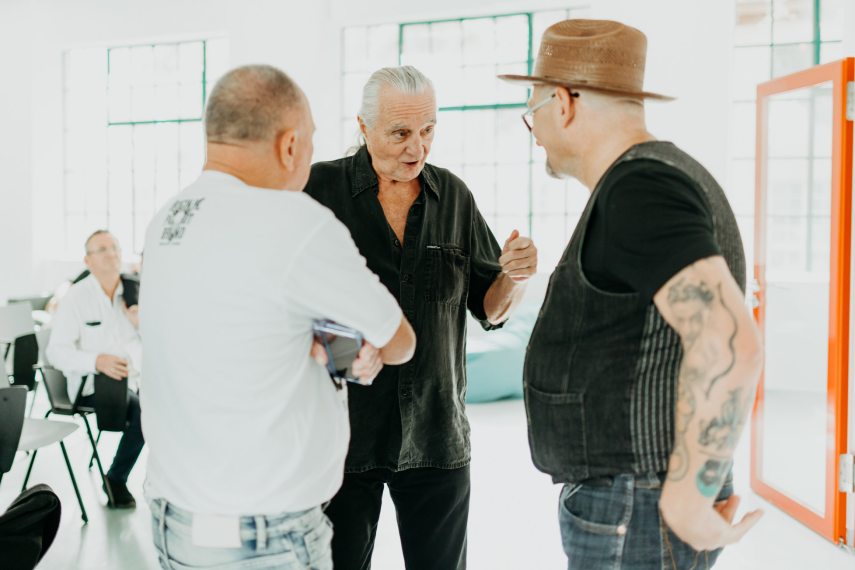Is pop music really a light genre? What does it take to become a charismatic speaker? And can artificial intelligence replace musicians? These are questions that are surely on the minds of students who have been accepted into our country’s first high-level light music course, created in collaboration with the Hungarian Cultural Foundation, the University of Miskolc and the Petofi Cultural Agency.
The University of Miskolc's Contemporary Music course opened its first semester in the capital with a concert and song tour. The newly launched higher education venue is the Boka Egon Academy of Arts.
Popular Culture, Artificial Intelligence, and the Divine Spark
What happens when you are the chairman of the board of trustees of the Hungarian Cultural Foundation? (He is also a practicing musician – editor.) Have you decided to try out what kind of music you can get with the help of artificial intelligence? In just three minutes, he composed a song that, if someone heard it on Petőfi Radio, they wouldn’t even notice that it wasn’t composed by a human. But one thing is definitely missing: the divine spark.

“The divine spark is what makes music music, and perhaps no one will be able to program that. For us, the human part, which is interpreted through creative and performing arts, needs to be nurtured,” Szilard Demeter, Chairman of the Board of Trustees of the Hungarian Culture Foundation, drew attention in his opening remarks.
According to his conviction, our basic culture has been what we call popular culture, popular music, and mass culture for decades, and for this reason the quality of this culture does not matter.
“If we think this is our core culture, it is of an academic level. It doesn’t matter what kind of light music we can produce, so quality and creativity are the key words,” the president added.
Light music is a cultural heritage.
The University of Miskolc, which currently has eight faculties and a wide training portfolio, owes its existence and survival to the fact that it has managed to nurture and preserve its traditions and respond to the challenges of the modern era at the same time, which is why tradition and innovation, i.e. tradition and innovation, became one of its mottos? Around 2017, the idea of the need for folk music education at the university level in Hungary was first formulated. In her opening remarks, Dr. Zita Horváth, Rector of the University of Miskolc, highlighted that many obstacles had to be overcome in order to establish folk music education at the university level in Hungary after years. He also pointed out that the jewel of the university is the Béla Bartók Faculty of Music, which offers training in classical music, and the fact that this year the faculty was expanded with a specialization in contemporary light music shows that serious and light music coexist peacefully. The training takes place in Budapest, within the walls of the Boka Egon Academy of Arts.

“We want to preserve the distinctive cultural heritage of our Hungarian light music for future generations. This can be achieved through young people who will continue it, and we want to send these young people on their way here,” said the Rector of Miskolc University.
Contemporary Pop Icons in the Cathedral
Advanced basic education in light music began with eight specializations: guitar, keyboards, saxophone, trombone, trumpet, bass, percussion, and vocals.

Students can learn from well-known and recognized folk music icons such as Tatra Award-winning guitarist Tibor Kosuth, Kati Kovacs as vocalist, and Károly Ferencz on bass guitar, but the teaching staff is enhanced by György Ferenczy and Edina Mockus-Szirtz, among others.
At the end of the event, Dr. Sandor Papp, Dean of the Béla Bartók Faculty of Music at the University of Miskolc, welcomed the students who were admitted as students, according to the tradition of the institution, and then Matías Szákadáty, Director of the Institute of Classical Music at the Béla Bartók Faculty of Music at the University of Miskolc, explained the objectives of the training. The students also took to the stage with three productions, two of which were their own compositions, which were composed during a joint workshop organized at the freshmen’s camp.
What advice did Kati Kovacs, who has been on stage for 60 years, give to the students? And what does Tibor Tatrai, the person in charge of the Light Music major, mean by the fact that those who graduate here will be “defeated by life”? It can be seen in the video of Kultúra.hu, filmed at the opening concert!
Dimitr Szilard, Head of the Public Collections Centre at the Hungarian National Museum, can be heard on Kossuth Rádio on Sundays. Freedom of a Place – Unusual Home Dictionary A series of notes based on his book. higher degree This note was presented in the September 15 issue of Vasarnaby. The topic of the last episode was folk music training, which By clicking here It can be heard.






